Lobbyists Estimate Billions in Fines If New Fuel Economy Rules Adopted

A letter from talking heads at an outfit called the American Automotive Policy Council outlines what it estimates billions of dollars in fines could be levied at companies like General Motors and Stellantis if a government proposal to hike fuel economy standards through 2032 is adopted.
Reuters is reporting the concerns were sent to the U.S. Energy Department last week, citing “alarming” expected penalties for companies not meeting proposed Corporate Average Fuel Economy (CAFE) requirements. In a nutshell, the DOE is seeking to revise how it calculates petroleum-equivalent fuel economy ratings for electric vehicles and plug-in hybrids under CAFE. Currently known as MPGe, efficiency numbers for these machines use a byzantine morass of values for national electricity, petroleum generation, distribution efficiency, and even driving patterns.
Proposed rules would change these calculations and likely saddle EVs and PHEVs with MPGe values far below the digits they garner today. Examples cited by Reuters suggest machines like the Chrysler Pacifica plug-in hybrid could fall from 88.2 MPGe to 59.5 MPGe, potentially putting companies in a bind if they are relying on these vehicles to boost fleet numbers. Automakers tend to buy credits or pay fines if they cannot meet CAFE requirements.
Without delving into too much of their math, the American Automotive Policy Council is suggesting GM could be on the hook for $6.5 billion under the new rules, while the bill at Stellantis would be somewhere in the neighborhood of $3.0 billion. Companies like Ford and VW could also get dinged for about a billion bucks, apparently.
If you’re wondering, the AAPC bills itself as AAPC is an association based in Washington, D.C. which helps American Automakers deliver on commitments by representing Ford, GM, and Stellantis on “common public policy interests” at the federal and international levels. In broader terms, going to bat for them when the gubmint wants to change something. Matt Blunt is the group’s president and a former governor of Missouri.
[Image: Siripatv/Shutterstock]
Become a TTAC insider. Get the latest news, features, TTAC takes, and everything else that gets to the truth about cars first by subscribing to our newsletter.

Matthew buys, sells, fixes, & races cars. As a human index of auto & auction knowledge, he is fond of making money and offering loud opinions.
More by Matthew Guy
Latest Car Reviews
Read moreLatest Product Reviews
Read moreRecent Comments
- Redapple2 Do your drinking at home !
- Redapple2 Chicago used to a great town. Shame.
- Redapple2 Why are Tesla sales falling?
- Ras815 It's insane they would go through all of that added expense and time to ship to Italy and back, all for noticeably inferior workmanship on their flagship product. A harbinger of GM's increasingly questionable decision-making, perhaps?
- ChristianWimmer US-spec 380SLs were especially asthmatic thanks to the emissions regulations. In Europe these were considered quite “quick” and powerful. They are slow cars by todays standards but excellent cruisers so this 380SL is perfect for someone who just wants a solid, open-top cruiser and not a weekend drag racer.IIRC the 560SL had a torque advantage over the European 500SL, but the 500SL was ultimately the quicker car.I own an ‘89 500SL R129 and despite the 326-horsepower torquey V8, it’s 0-100 km/h “performance” is held back by the 4-speed automatic and 2-ton weight. Even in their day these cars were not intended for drag racing or 0-100 km/h bragging times. They are cruisers meant to be enjoyed in a responsible manner. Plus, driving faster than 120-130 km/h with the top down or the soft top closed results in high wind noises for the former and a loud fluttering cloth top for the latter. As a result I drive a maximum of 110 km/h on the Autobahn with the top down or 120-130 km/h with the top up.



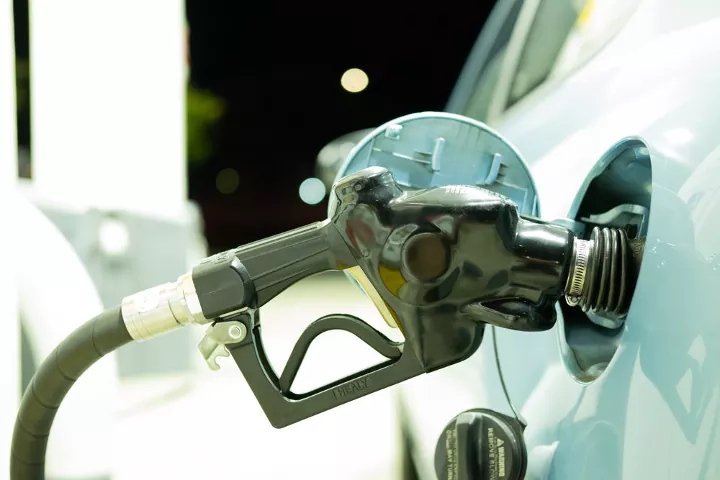














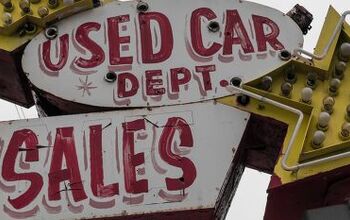



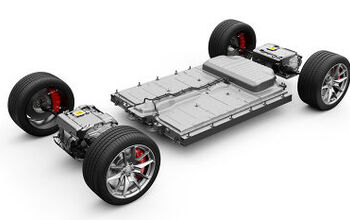




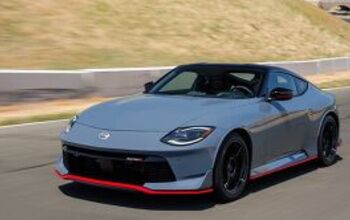



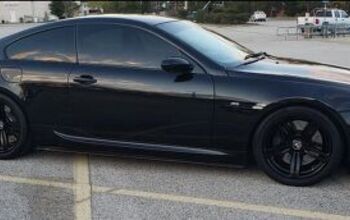


Comments
Join the conversation
Meanwhile, the Automotive Alliance for Innovation, that represents the Big 3, blasted NHTSA's CAFE proposal, stating it "exceeds maximum feasibility", and will cost the automakers $14b in fines between 2027 and 2032.
NHTSA's reaction: Lol, just build more EVs, you silly gooses.
What happens if consumers revolt, won't buy EVs, and hold on to their old cars instead?
"Reuters is reporting the concerns were sent to the U.S. Energy Department last week, citing “alarming” expected penalties for companies not meeting proposed Corporate Average Fuel Economy (CAFE) requirements. In a nutshell, the DOE is seeking to revise how it calculates petroleum-equivalent fuel economy ratings for electric vehicles and plug-in hybrids under CAFE. Currently known as MPGe, efficiency numbers for these machines use a byzantine morass of values for national electricity, petroleum generation, distribution efficiency, and even driving patterns."
Its hard to keep track but didn't some unelected technocracy already decree the CAFE standards for 2024ish to be 49mpg? So now we're going to go full retard for 2030ish and tinker with our CAFE formula while simultaneously going to I think 58mpg? I have a better plan, you're all fired.